Identifying EI Data User Needs at EITI Global 2019
With support from the Open Societies Initiative for West Africa (OSIWA), Development Gateway (DG) began conducting studies in July 2018 in Senegal, Guinea, and Nigeria to map data needs, availability, and use in the extractives sector.
Last week at the EITI Global Conference in Paris, France, we shared key takeaways and findings on EI data needs in the session Leveraging Information Technology in EITI Mainstreaming. Today, we’re sharing more details from our presentation and how takeaways are building into our extractives data use work in West Africa.
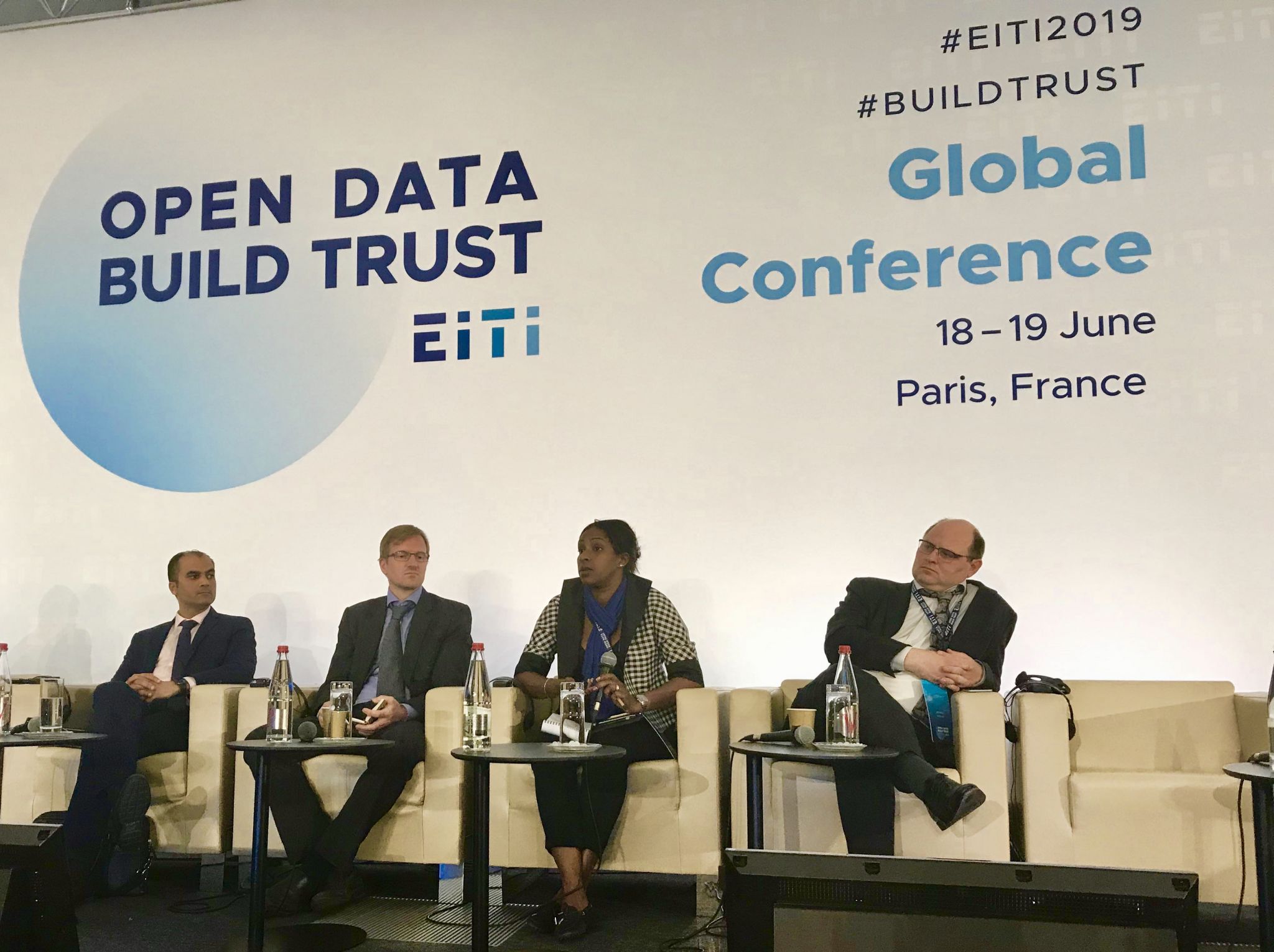
DG presenting on the Leveraging Information Technology in EITI Mainstreaming panel.
In partnership with OSIWA, DG assessed each country’s readiness to open up its extractives industry (EI) data, and understand the feasibility of implementing Extractives Industry Data Portals (EIDPs). In each country, we have conducted in-depth assessments of legal, institutional, and organizational contexts, as well as a technical review of existing systems and specific user needs. From these assessments, our key findings point to the development of data systems as a priority action point in each country.
First, we found that the Extractive Industry Transparency Initiative (EITI) standard has a significant positive impact at the country level, bringing together all EI stakeholders.
Second, governments have made tangible efforts to include EI principles in legal frameworks and legislation. EITI Senegal and EITI Nigeria’s strategic plans for 2017-2021 prioritize data system development.
Third, good governance principles in country level mineral resource management are being implemented – starting with disclosure of financial flows from companies to government, and from government to communities.
Fourth, EITI Multi-Stakeholder Groups (MSGs) have established strategic partnerships with CSOs to disseminate EI community level information, as a starting point for communities to hold institutions accountable for sustainable extractives policy.
Despite this progress, there is a demand for more. What needs do EI data users in Senegal, Guinea, and Nigeria have?
Information contained in EI reports is often delayed, not accessible, and not easily understood by communities and local elected representatives. As such, there is a growing demand for simple information: disaggregated data on funds received and their allocations; environmental risks and corrective measures empowering communities to be involved in EI activity monitoring; and data on EI’s impact on women’s health and education.
This information would (i) increase CSOs’ evidence-based advocacy, (ii) ensure that mining companies’ actions align with community priorities; and (ii) promote sustainable initiatives during and after the EI extraction phase.
With the addition of gender to the just-launched 2019 EITI Standard, gender considerations continue to be a top priority in extractives resource management.
As DG prioritizes gender internally and across our programs, we understand that gender considerations in EI should extend beyond merely the number of women in EI positions of power – instead, it must also protect women’s rights, education, and health. Through our partnership with Women in Mining Guinea (WIM Guinea), we’ve developed the indicators for the Women in Mining Africa Index. The Index determines a country’s women’s empowerment score by measuring:
- Legal: Are there any legislations in favor of women’s inclusion in the EI sector?
- Government: What is the government’s role in promoting gender equity?
- Private companies: What are its HR statistics regarding women (type of contracts, difference in salaries, involvement in capacity building efforts, etc.), CSR efforts, women’s involvement in health and education initiatives?
- Civil society and Development Partners (DPs): What are CSOs’ and DPs’ doing to encourage the implementation of a mining-related industry activities with a long term vision, through the development of strategic sectors like construction, transport, energy, agriculture, etc?
- Communities: What are the social roles and levels of social empowerment of women living in mining communities?
- Impact of mining activities: What are the impacts of mining activities on the environment, health, education levels of women? Are there specific maternal, neonatal and child health concerns for women in mining-heavy communities? Further, how does the prevalence of mining activities affect women and girls’ safety and ability to achieve basic and higher levels of education?
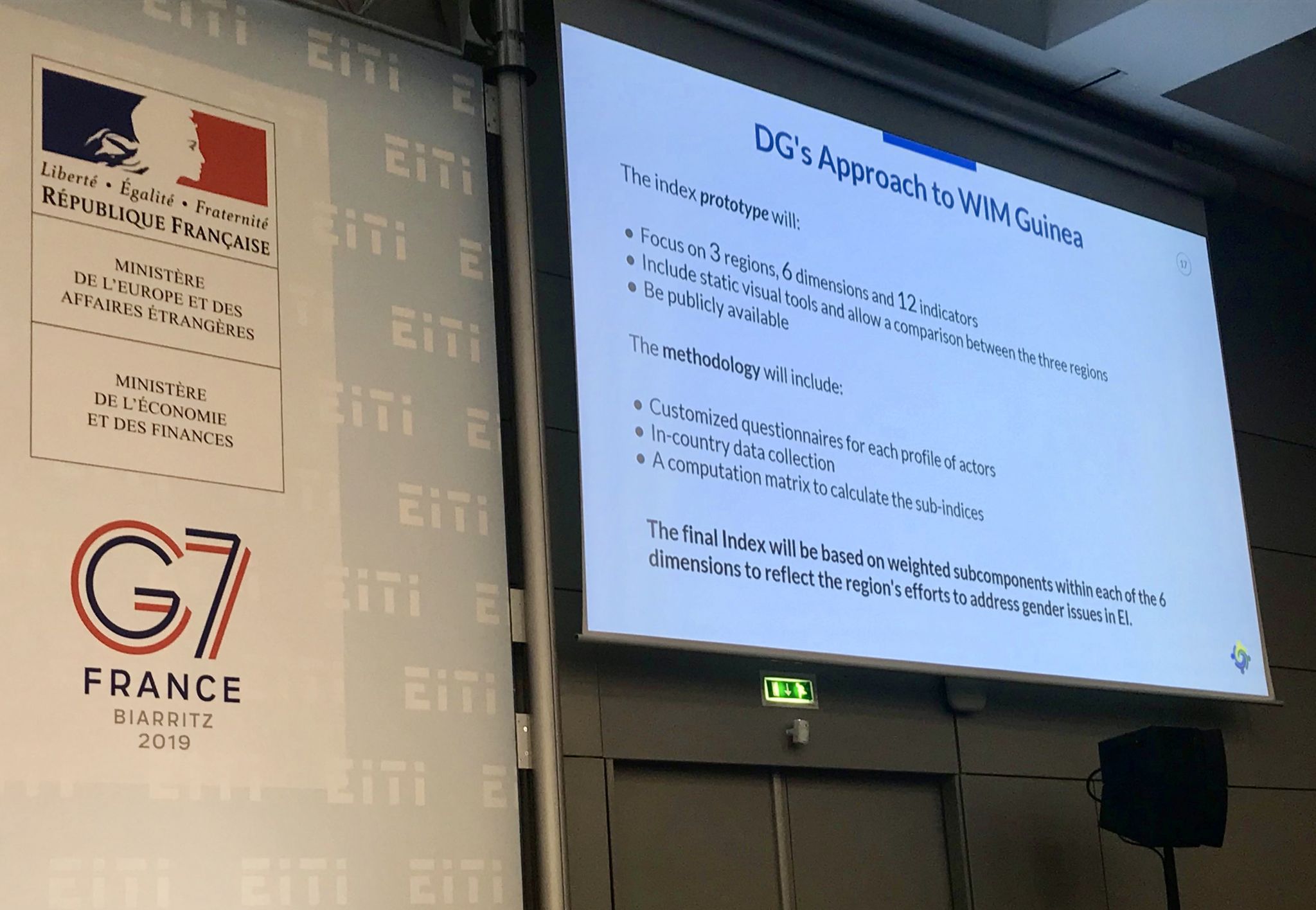
From our session at EITI Global, DG’s approach to the WIM Guinea Index Prototype
The WIM Africa index is a prototype with WIM Guinea, being piloted in 3 regions, on 6 dimensions and using two variables.
The dimension(s) with the lowest score will define priorities to be included in national strategies and DP action plans, and will provide a strong advocacy foundation for women’s conditions in the EI sector. We hope that by the time the EI community gathers for the next global conference, we will be able to share the full development of the WIM Africa Index.
Share This Post
Related from our library
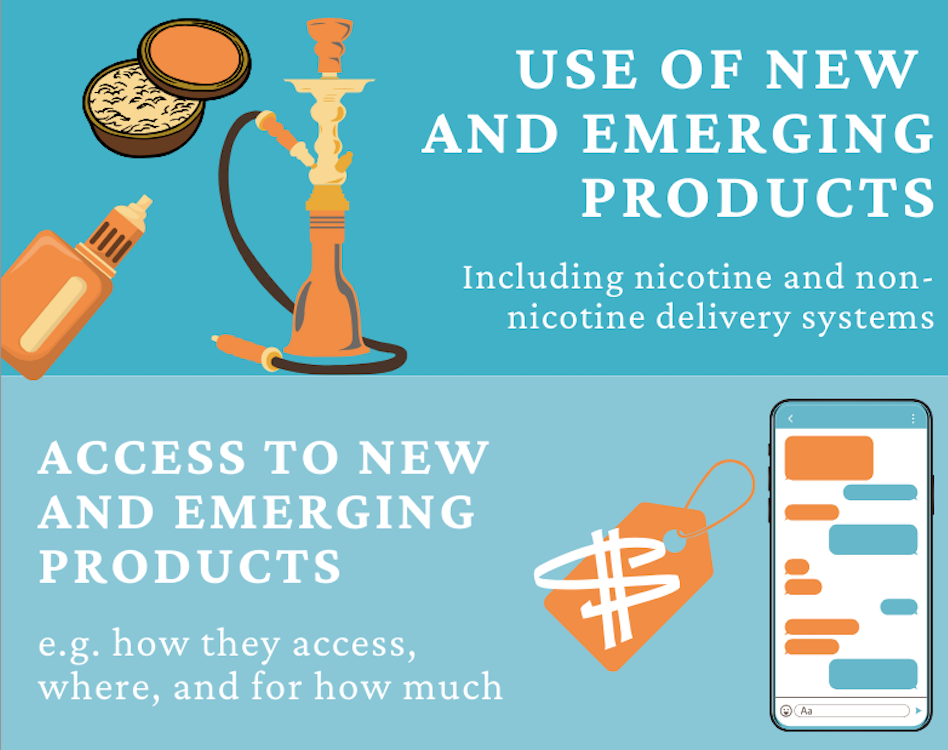
Diving into the DaYTA Program’s Data Collection Process
This blog explores key insights from the DaYTA program, offering practical guidance for researchers on effective data collection, overcoming field challenges, and leveraging local partnerships to enhance tobacco control efforts. This piece is especially timely following DaYTA’s workshop convening all 3 study country stakeholders to review the survey results and strategize on how best to disseminate this data to target audiences. This workshop took place from in Lagos, Nigeria, from November 18-20th.
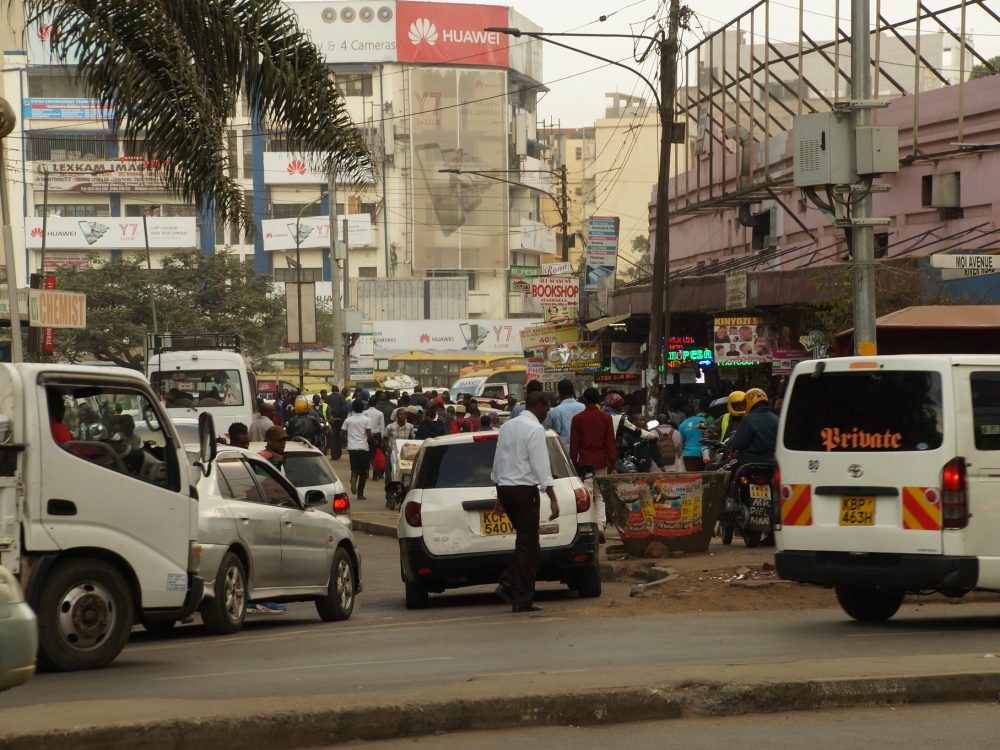
New Research Manuscript on Mortality from Tobacco Use in Kenya
DG is excited to announce the publication of a research manuscript on Mortality from Tobacco Use in Kenya in Tobacco-Induced Diseases. This research was carried out as part of the Tobacco Control Data Initiative (TCDI).
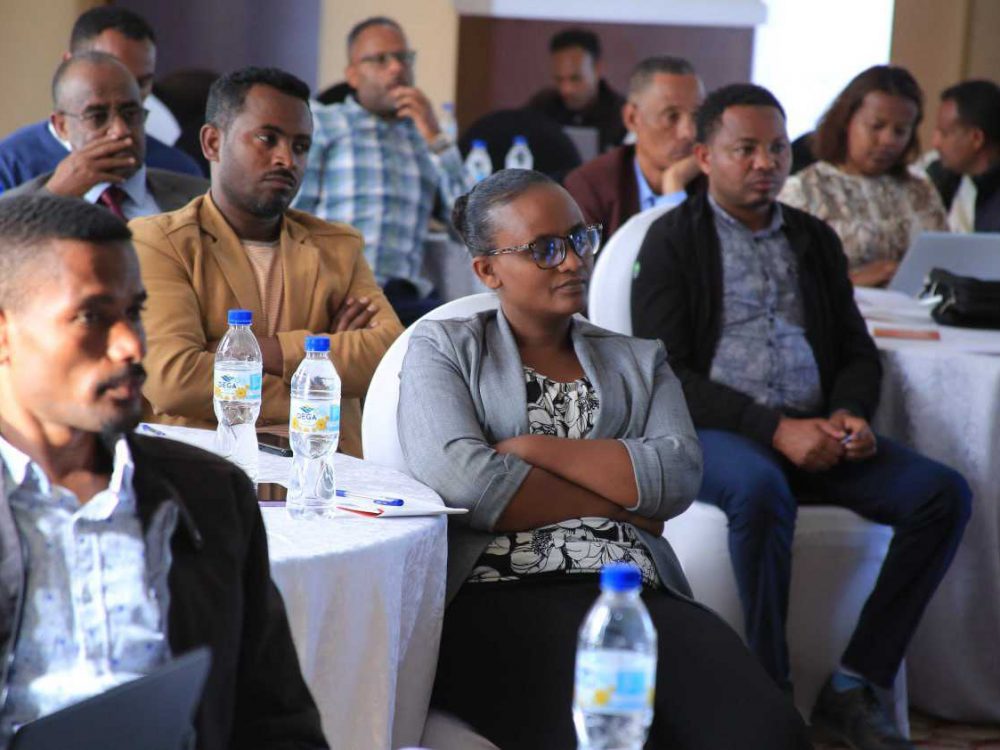
Connecting Digital Dreams to Infrastructure Needs: Three Lessons from the aLIVE Program
After eighteen months of implementing the aLIVE program, we’ve learned three lessons on how to best support our partners in Ethiopia, advance our work in data systems and management, and ultimately, reach our overall goal of supporting Ethiopia in achieving food security and building a more robust, independent economy.